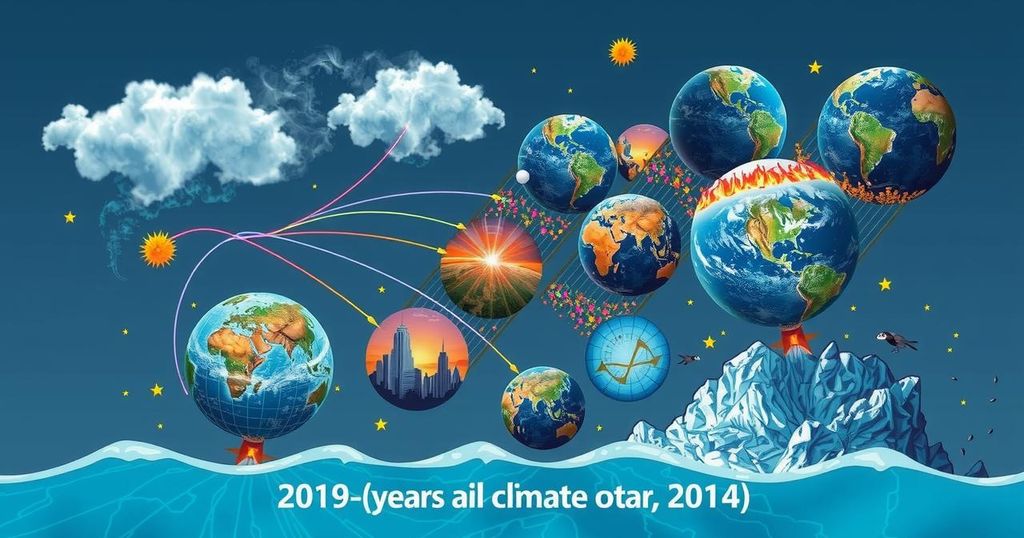The year 2024 has seen unprecedented climate extremes, including devastating floods in Brazil and Hurricane Helene in North Carolina. This is projected to be the hottest year on record, with a significant link to climate change as emphasized by scientists. The repercussions of these events are profound, affecting economies and communities worldwide.
In 2024, the world has witnessed a staggering array of extreme weather incidents, significantly impacting communities globally. From catastrophic floods in Brazil, which dislocated thousands, to the powerful Hurricane Helene that struck North Carolina, these climatic upheavals have underscored the reality of our changing environment. This year is projected to be the warmest on record, with unprecedented temperature increases observed across continents. As scientists increasingly link these extreme events to climate change, the urgency for global responses becomes ever more critical.
The effects of these severe weather phenomena illustrate not only the immediate destruction they cause but also their long-term consequences on local economies and ecosystems. Communities are grappling with the aftermath, as infrastructure crumbles under the pressure of relentless storms and unexpected deluges. The photographs documenting these events reflect both the beauty and the tragedy of our planet, serving as stark reminders of what is at stake.
As we assess the cumulative damage inflicted by these climate extremes, it is also essential to acknowledge the growing awareness surrounding climate change. Scientists are clarifying the correlation between the warming atmosphere and the increasing frequency of natural disasters, urging immediate action. Individuals, organizations, and governments alike are called to mitigate further changes in our climate and adapt to the new realities brought on by these events.
The discussions surrounding climate change have intensified in recent years, particularly with the escalation of extreme weather events. Climate scientists have recognized a pattern linking global warming to the frequency and intensity of natural disasters, compelling a global dialogue on environmental policy and adaptation strategies. The phenomenon of climate change is no longer a distant threat but a pressing crisis that requires immediate collective efforts to safeguard human and ecological systems.
In conclusion, 2024 has been marked by significant climate extremes that have wreaked havoc on various communities, highlighting the urgent need for action against climate change. The record-breaking temperatures and severe weather events emphasize the direct impacts of our changing environment. It is imperative that we heed the warnings from scientific communities and actively engage in solutions to mitigate these catastrophic climate effects for future generations.
Original Source: e360.yale.edu






